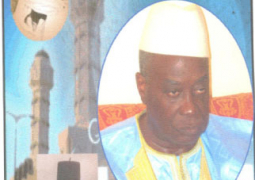“Therefore
come out from among them and be separate, says the Lord.” (2 Corinthians 6:17)
If
there are two different dwelling places in eternity--heaven and hell--our final
destinations, then logically there must be two separate routes leading there.
On three instances our Lord Jesus made this distinction crystal clear. He
distinguishes between sheep and goats--with regards to those who would or would
not enter heaven and the wheat and the weeds referring to the fate of the good
and wicked people. In another parable, He dwells on our readiness or lack of
vigilance in receiving Him, the bridegroom of the church.
Through
His teachings, the Lord Jesus exhorts us to be vigilant and be on the alert,
for a slight moment caught off-guard, is enough to turn the tables. Our actions
and attitudes can affect our status with regard to where we spend eternity. The
things we do or say all matter a great deal. It is best He finds us ready.
Every
signpost bears a potential warning to the user, the passer-by or onlooker. They
are not just put up as decorations. The same applies to these specific parables
told by our Lord Jesus. He is the Saviour of the world, come to save humanity
from sin. He came from the Father and has returned to the Father---the reason
why He is privy to these things. His desire is that we all make it to heaven a
more blissful place than hell. Every one of us needs to know where he/she is
going to spend eternity, beginning now.
The
sheep and the goats
Our
Lord Jesus uses familiar images His audience could relate to. “When the Son of
Man (Jesus) comes in His glory, and all angels with Him, He will sit on His
throne in heavenly glory. All the nations will be gathered before Him, and He
will separate the people one from another as a shepherd separates the sheep
from the goats. He will put the sheep on His right and the goats on His left.”
(Matthew 25:31-33)
The
sheep on His right will hear “Come, you blessed of my Father, take your
inheritance, the kingdom prepared for you since the creation of the world.”
(verse 34) To the goats on His left, He would say: “Depart from me, you who are
cursed, into the eternal fire prepared for the devil and his angels.” (verse
41) “Then they---the goats will go away to eternal punishment, but the
righteous to eternal life.” (verse 46) What would be the criterion for the
separation, you may wonder? It is based on how we treat our fellow brothers and
sisters when they were hungry, thirsty, homeless or naked. Because for each act
of kindness done to one of these categories of people, it is as if it had been
done to Him (Christ). Remember we are each other’s keeper.
The
wheat and the weeds.
“A
man sowed good seed in his field. But while everyone was sleeping, his enemy
came and sowed weeds among the wheat, and went away. When the weed sprouted and
formed heads, then the weeds appeared.” (Matthew 13:24-26) The natural reaction
would be to pull out the weeds, but the owner instructed them not to, for fear
that in pulling the weeds the wheat could be pulled out also. He would rather
wait until the harvest when the weeds will be collected first, bundled and be
burnt. Thereafter, the wheat could be gathered and put in the barn.
The
owner in this parable is God speaking about the operational principles of His
kingdom. The weeds represent the wicked on this earth alongside the wheat which
refers to the good people. People have always wondered why God does not punish
the wicked for their evil deeds or wipe them from the face of the earth. Jesus
says their reward will come at the appropriate time. For when they would have
thought that all was well, then destruction will strike. The unrepentant sinner
cannot enter the kingdom of heaven, they will be cut off. Therefore all those
who are doing evil must quit their wicked ways.
Jesus
is teaching about what the kingdom of God really is like, as opposed to our
expectations of it. The young weeds and wheat look very much alike and in order
not to damage the wheat they must be left until the harvest. Weeds
(unbelievers), wheat (believers) must live alongside each other until when the
Son of God returns and the separation takes place.
The
ten bridesmaids
In
the parable of the ten virgins, our Lord Jesus pictures a wedding feast when
the bridegroom comes for his bride. The hour is not known, he can appear at
anytime. There is a waiting time; a state of expectancy. All of the five
virgins came with their lamps filled with oil. The five that did not come with
extra oil for their lamps should in case the oil runs out were called foolish.
So when the bridegroom was announced at midnight, their lamps needed to be
refilled. They requested for help from the five wise who were filling their
lamps and they refused on the basis that they would not have enough to last
them through the ceremony. Now, as these five maids went in search of oil, the
bridegroom arrived and the gates were shut and they were denied entry. “ ‘Sir,
sir,’ they said. ‘Open the door for us!’ But he replied, ‘I tell you the truth,
I don’t know you.’ ” (Matthew 25:11-12)
How
ready are we for the return of the bridegroom (Jesus) when He returns to take
His bride (the church) with Him? Because we do not know neither the day nor the
hour when Jesus will appear, Jesus commands us to ‘keep watch.’
It
is not the desire of our Lord Jesus that anyone should miss heaven--that is the
reason for the repeated emphasis. Everyone who confesses Him as Lord and
Saviour has taken his/her first step, for He said; “I have come that they may
have life and have it to the full.” (John 10:10)



